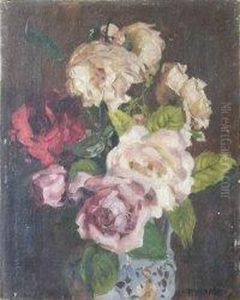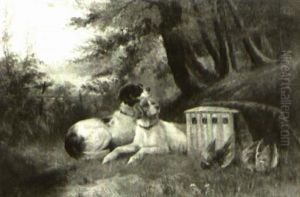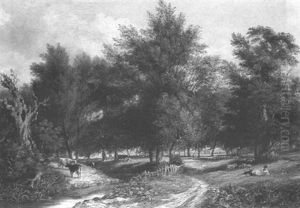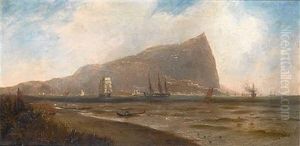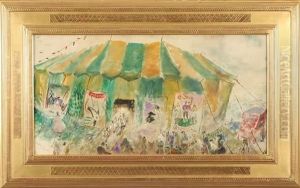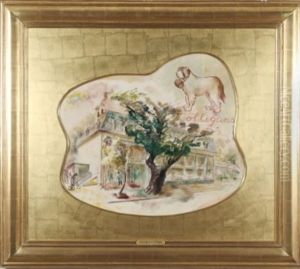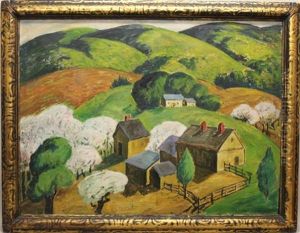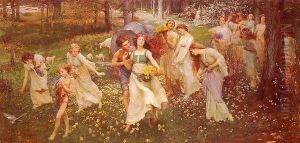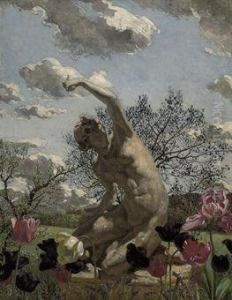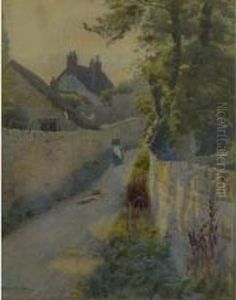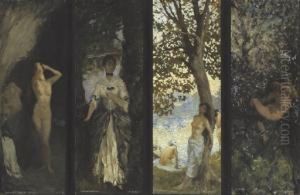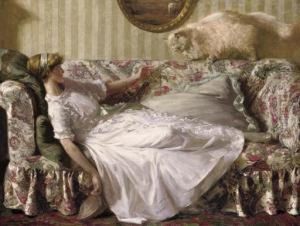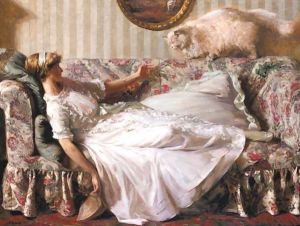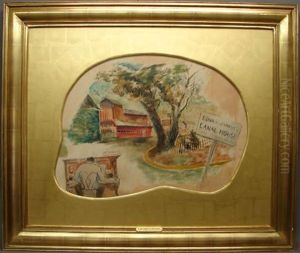Charles Ward Paintings
Charles Ward was an English artist known for his work as a printmaker, painter, and illustrator. Born in the year 1900, Ward's early life and artistic development were influenced by the aftermath of the Victorian era and the changes brought by the new century. His work reflects a transitional period in British art, where traditional techniques were being infused with modernist sensibilities.
Ward studied at the Royal College of Art in London, where he was exposed to a variety of artistic movements and styles. He was particularly influenced by the Arts and Crafts movement, which emphasized the importance of craftsmanship and design. This is evident in his detailed and carefully composed prints and illustrations. He also drew inspiration from the burgeoning modernist movement, experimenting with form, color, and composition in ways that broke from the academic traditions of the past.
Throughout his career, Charles Ward was known for his versatility. He worked in various mediums including oil painting, watercolor, and etching. His subject matter ranged from landscapes and rural scenes, reminiscent of the English countryside, to more urban and industrial motifs, reflecting the changing face of Britain during his lifetime.
Ward's contributions to the art world were recognized in his time, and he exhibited at major institutions such as the Royal Academy. However, like many artists of his generation, his work was somewhat overshadowed by the dramatic stylistic shifts and the emergence of abstract expressionism post-World War II. He continued to work and exhibit throughout his life, maintaining a modest but dedicated following.
Charles Ward passed away in 1962, leaving behind a body of work that captures a unique snapshot of British art in the first half of the 20th century. His prints and paintings are held in several collections and continue to be appreciated for their craftsmanship and historical value.
